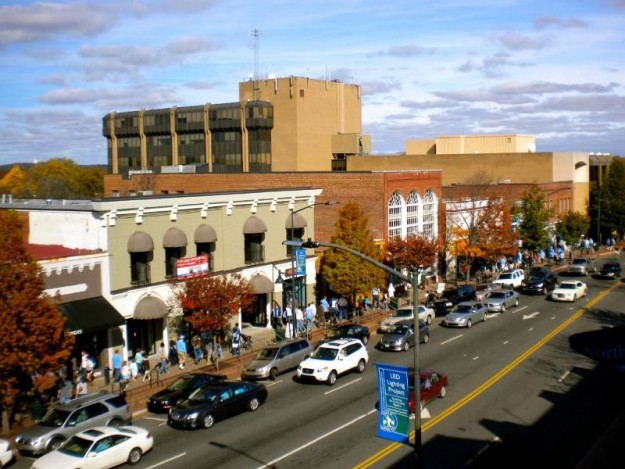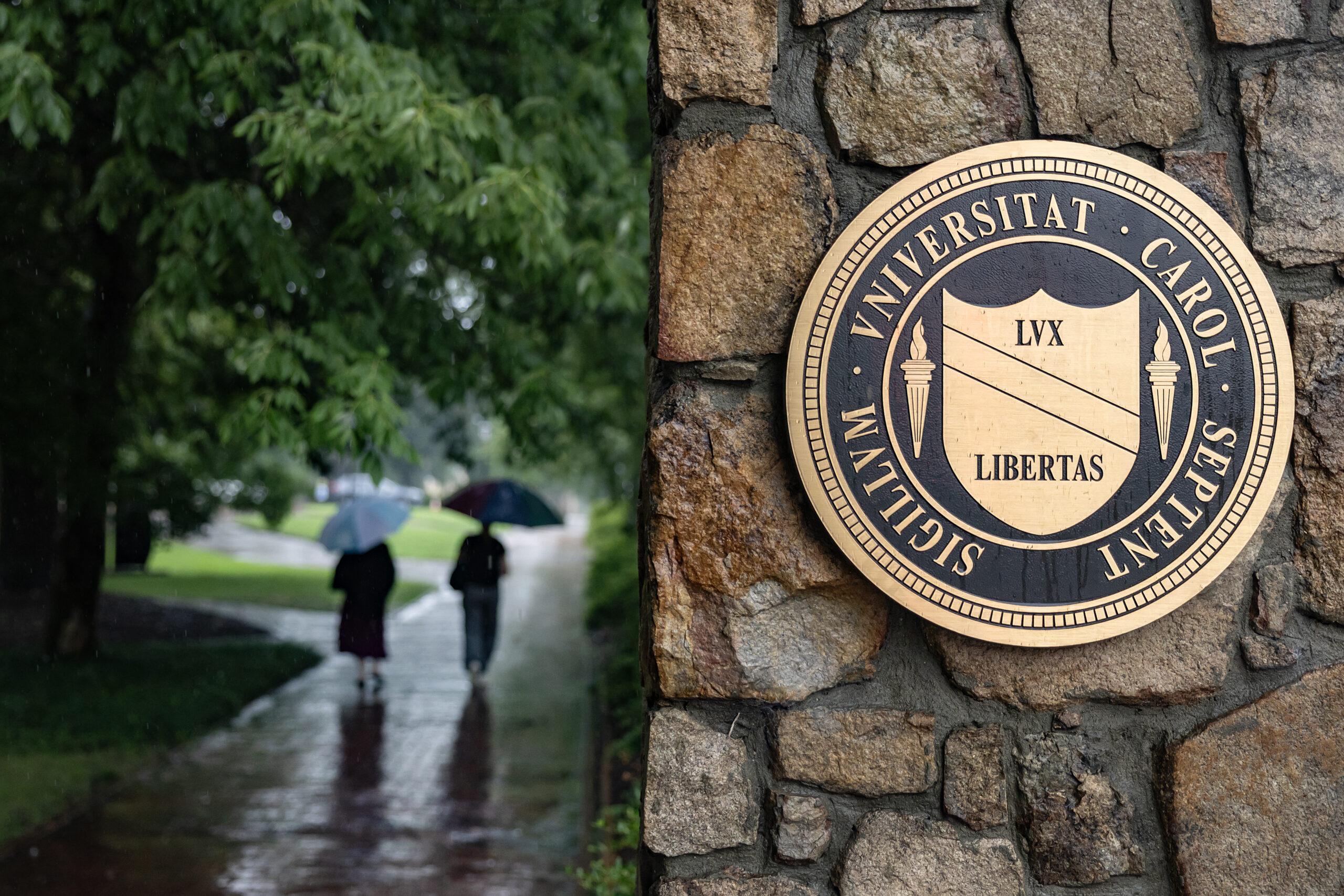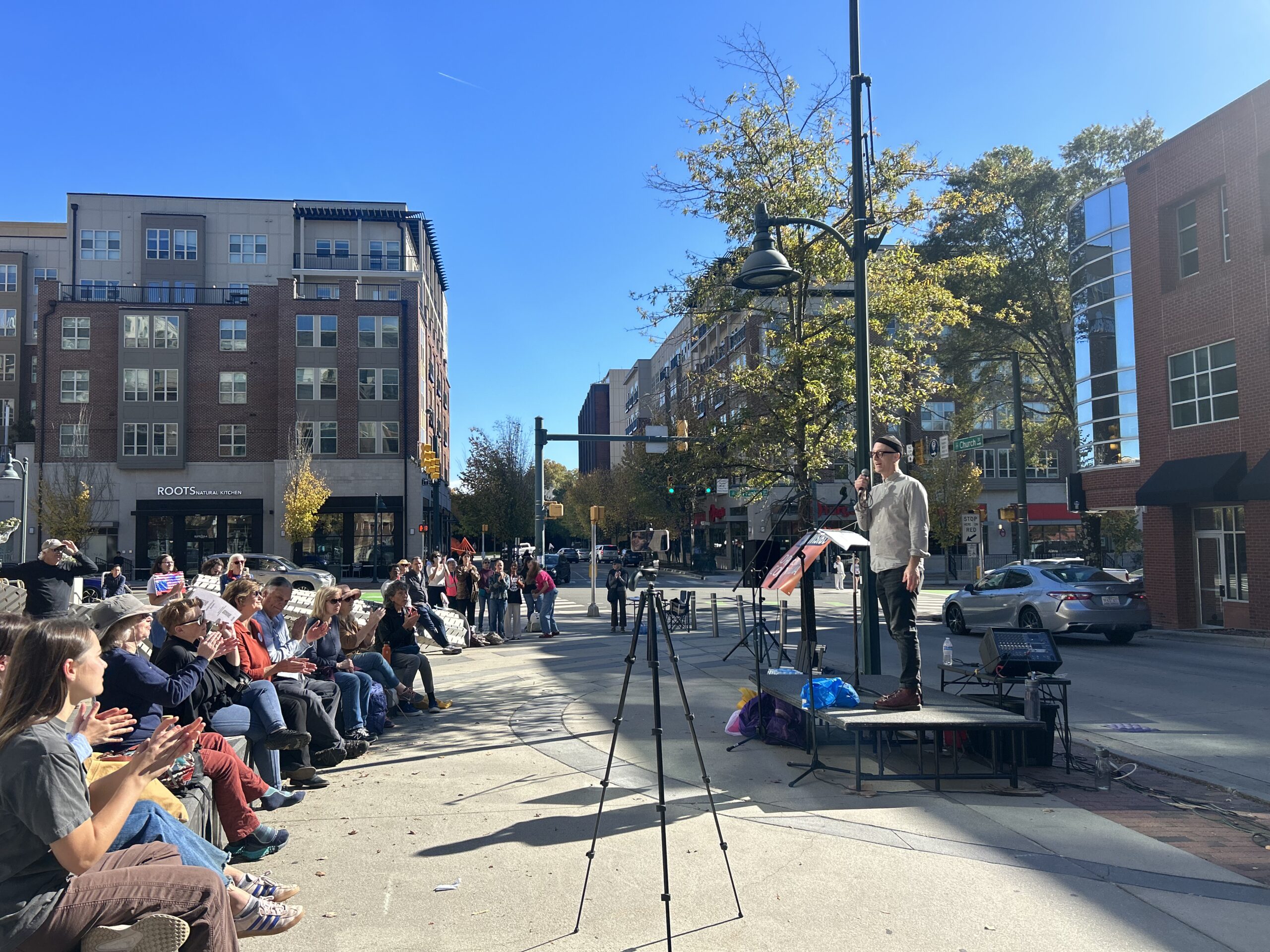Indivisible Orange County recently hosted a rally in support of academic freedom in higher education. The local event worked to raise awareness about increasing government restrictions on educational content and reductions in federal education funding, particularly at UNC and public universities.
On Friday, several dozen community members, university students, and faculty gathered at 140 West Franklin Street to hear and share words of support at the Right to Light demonstration. Co-Director of Civic Engagement for UNC Young Democrats Emma Cecchini is one student who spoke at the event, and she explained how she thinks nearly every Carolina student currently feels a threat to higher education.
“UNC is constantly ranked among the top universities for research, but 38.4 million dollars in research funding was cut by the Trump administration,” Cecchini said. “I guarantee that if you walk around campus and just ask random students, ‘Hey, how has the Trump funding cuts affected you?’ I guarantee almost all of them will start going on a rant about how it has affected them and how upset they are.
“I know because I did this,” she continued.
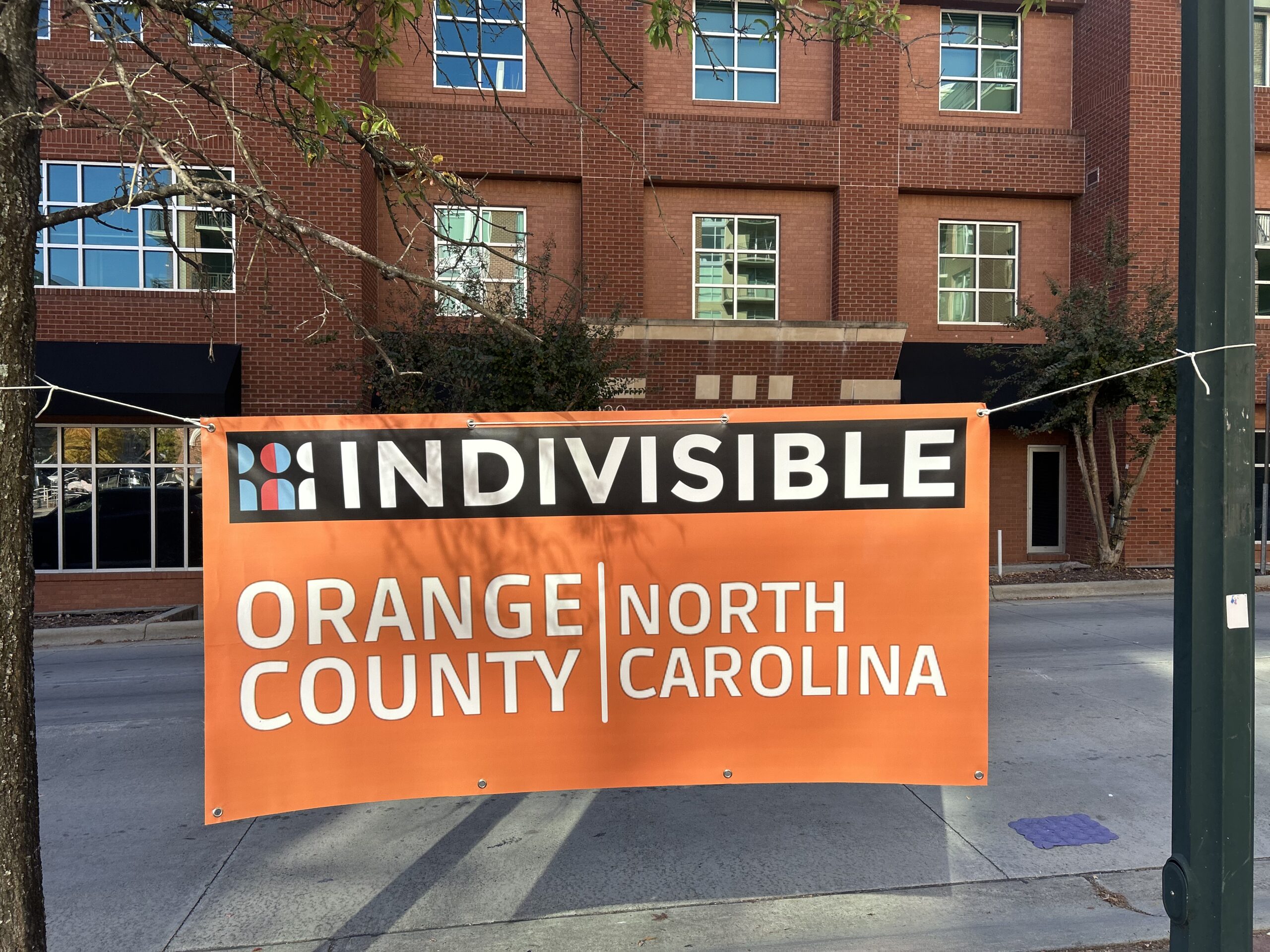
Hosted by Indivisible Orange County, the October 24 Right to Light rally acted as a space for local university students and faculty to voice concerns for higher education.
Cecchini said the consequences of federal budget cuts often include research left undone, paid internships turned unpaid, and dreams deferred, which she said is what happened to her last year.
She explained how there are not many undergraduate opportunities for anthropology students like her, so when her mentor had sent along a paid internship opportunity in Senegal, Cecchini said she had eagerly applied for it.
“After submitting everything, I received an email a few weeks later saying that the fellowship had to be put on hold due to the changes in federal policy,” Cecchini said. “Those changes in federal policy were the Trump administration’s funding cuts. Cuts that froze programs, delayed grants, and made it harder for young people like me to pursue education, research, and international collaboration.”
It was the first time the program shut down in its 30-year history, Cecchini said.
Professors from UNC and other universities also spoke at the October 24 rally, noting how they and other faculty members are similarly fearful due to lessened resources and feeling like they need to alter course curriculums. Duke Professor and American Historian Nancy MacLean said she believes suppression aimed at universities is a way to control power, thought, and research.
“This is really serious stuff,” MacLean said. “It is not just that faculty across our state, but particularly in public institutions, are having to scrub their syllabi, to change their courses, to please the authoritarians or risk their jobs or their institutions. That is bad enough.”
MacLean added how the effort does not stop at universities, citing the removal of historical artwork and exhibits at sites like the National Museum of African American History and Culture.
But along with the frustrations shared, the rally also featured words of solidarity and focused on UNC’s motto: Lux Libertas, meaning light and liberty. North Carolina Senator Graig Meyer described the motto as an organizing call amid the fear and darkness many students and public educators are currently feeling.
“Here we are to share the amazing impacts of this institution that we all love with this theme of light and liberty,” Meyer said. “They really are the opposite of those prevailing conditions that are making us feel like we have to organize these days.”
Associate Professor Dwayne Dixon expressed how he saw that kind of light earlier this month when the UNC community protested his suspension over ties to an anti-racist group.
“I [had] this surge of possibility,” Dixon said. “Because I knew that the community that I’d been a part of, both on campus and across Chapel Hill, Durham, Hillsborough, Carrboro, Cary, Raleigh. I knew people would step up.”
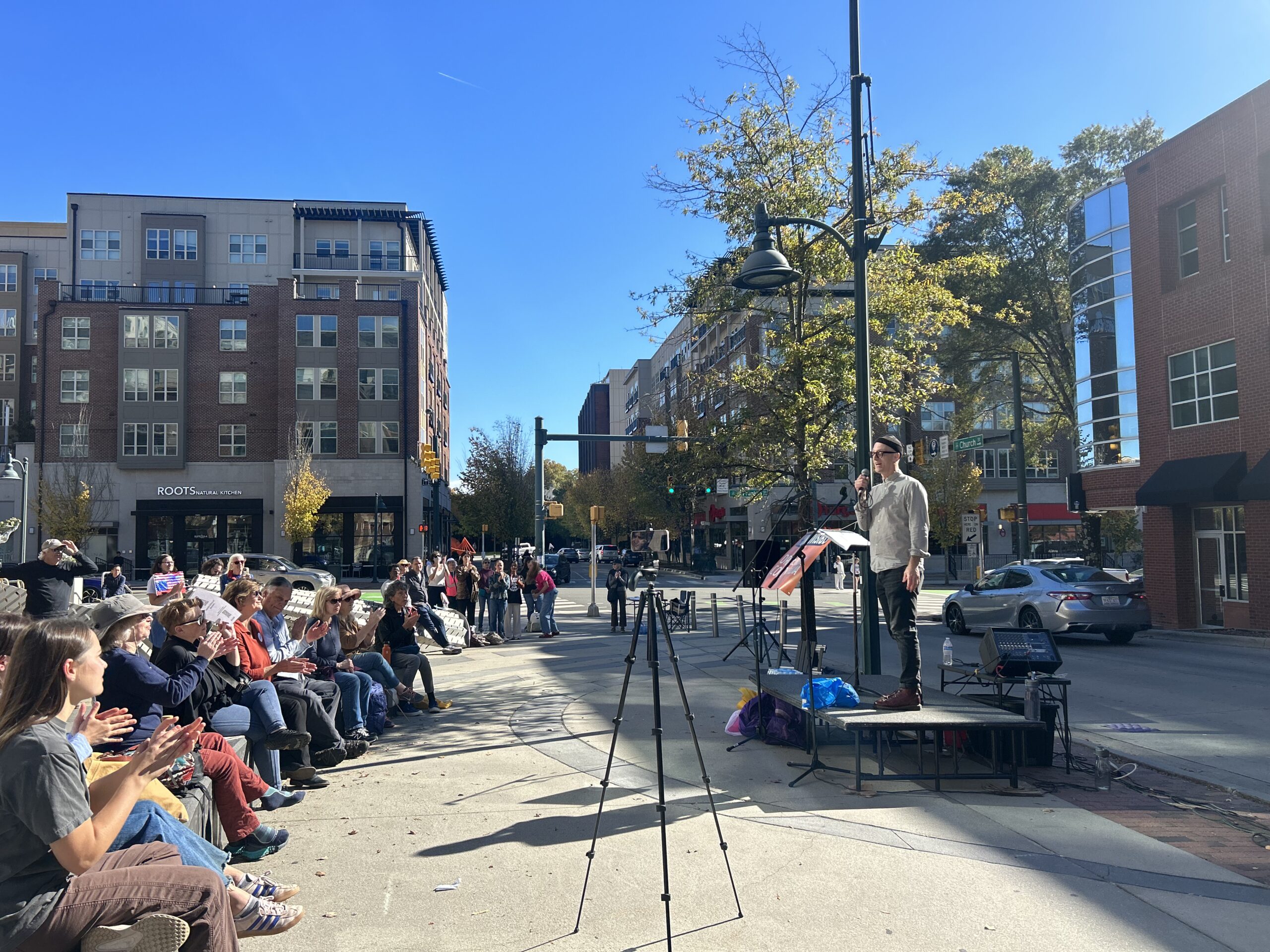
Last month, Associate Professor Dwayne Dixon was placed on administrative leave by UNC for his ties to an anti-racist group. He returned to the classroom the next week following a university investigation.
Reinstated within a week, Dixon said he thinks the event was proof of the community’s shared solidarity and how it will not be moved by federal, state, or university pressures. Moving forward, he said that sense of community will be crucial in the continued fight for academic freedom.
“We will not be afraid,” Dixon told the small crowd. “We will stand up for one another’s speech, for one another’s right to pursue the kind of research they choose, to have difficult conversations in class and to confront white supremacy when it shows up, either on campus or off.”
Chapelboro.com does not charge subscription fees, and you can directly support our efforts in local journalism here. Want more of what you see on Chapelboro? Let us bring free local news and community information to you by signing up for our newsletter.

